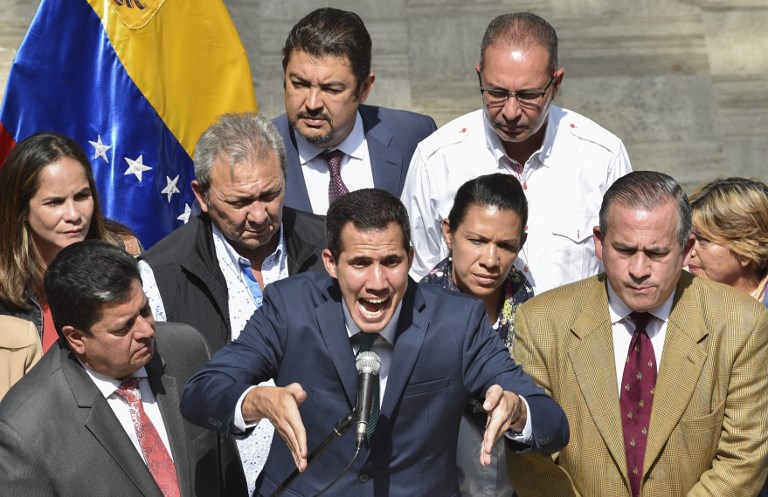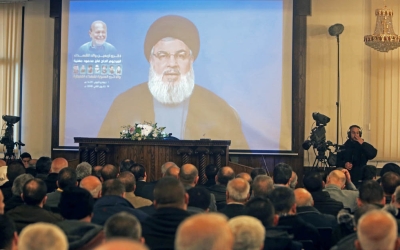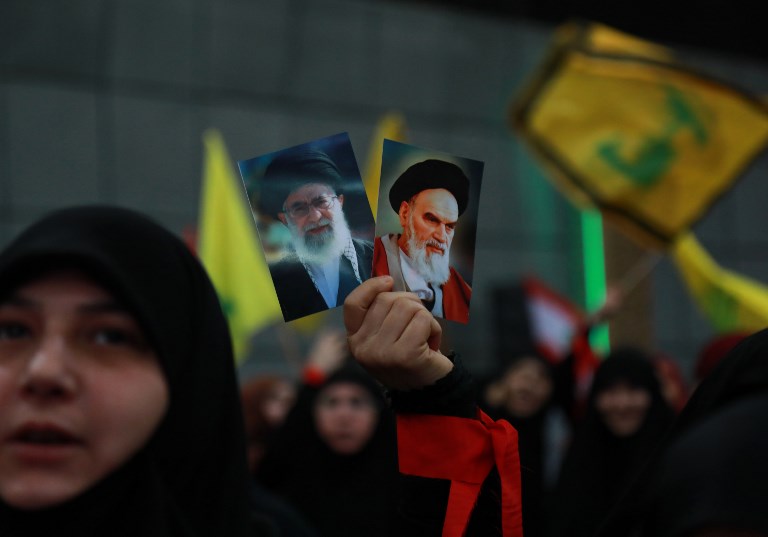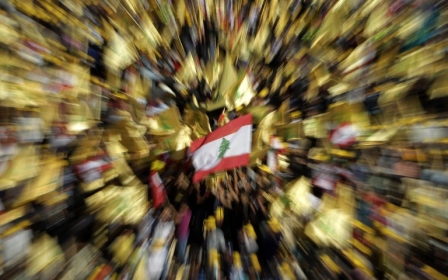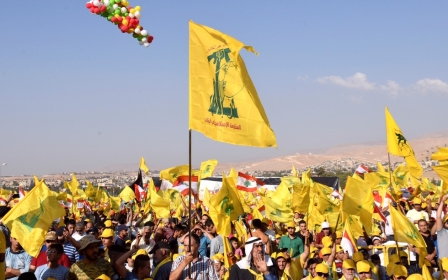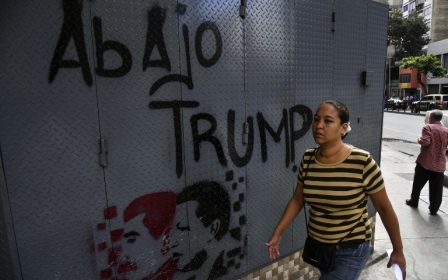Venezuela, Hezbollah and Iran: The latest hysteria from the US ‘backyard’
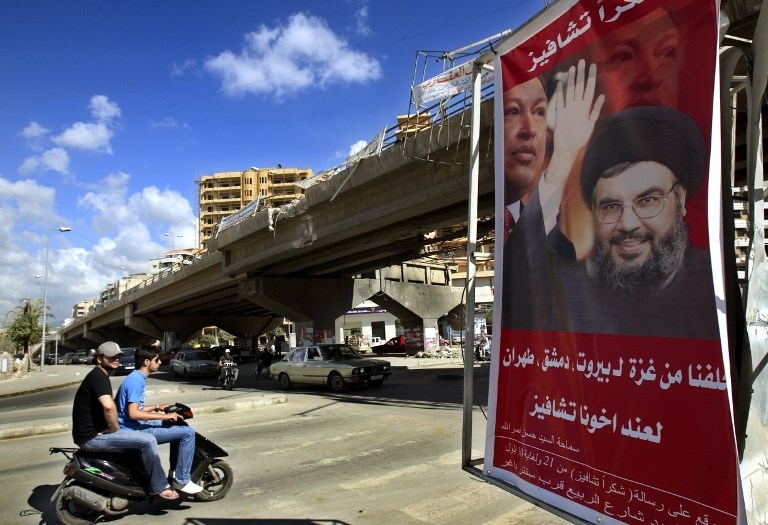
Speaking on 6 February to Fox Business about the ongoing crisis in Venezuela, US Secretary of State Mike Pompeo had a grave warning about outside interference in the South American nation: “People don’t recognise that Hezbollah has active cells. The Iranians are impacting the people of Venezuela and throughout South America."
The next day, the US Southern Command’s Admiral Craig S Faller informed the Senate Armed Services Committee that Iran “has deepened its anti-US influence campaign in Spanish-language media, and its proxy Lebanese Hezbollah maintains facilitation networks throughout the region that cache weapons and raise funds, often via drug trafficking and money laundering”.
As usual, concerned media took the ball and ran with it.
Sensationalist drivel
In one exemplary piece of sensationalist drivel for Radio Farda - the Persian-language component of the US government-funded Radio Free Europe/Radio Liberty network (with a website also in English) - Penny L Watson babbled about the threat posed to the US on account of Hezbollah and Iran’s alleged conversion of Venezuela into a base of operations.
As of 2010, she asserted, there were “as many as six terrorist training camps” scattered around the Venezuelan capital of Caracas and Margarita Island off the country’s coast, regularly hyped as a terror hotbed. (I myself incidentally visited the island around that time and didn’t manage to track down a single “terrorist”, despite being in the company of a Lebanese-Palestinian friend who had fought alongside Hezbollah against the Israeli occupation of Lebanon.)
We’d be forgiven for perceiving the Caracas-Tehran one-stop as something less than a smoking gun
A New York Post article by Benny Avni, who surmises that “Iran’s clerics” must be “trembl[ing] as they watch their old Caracas allies teeter”, brings up another pet factoid regularly regurgitated by right-wing fearmongers: the possibility of air travel between Venezuela and Iran.
Back in 2009, Israeli Deputy Foreign Minister Danny Ayalon sounded the warning that “we know that there are flights from Caracas via Damascus to Tehran”. Given that it is also possible to fly with minimal difficulty from Caracas to places like Tel Aviv, however, we’d be forgiven for perceiving the Caracas-Tehran one-stop as something less than a smoking gun.
Renewed onslaught
Other intriguing neo-conservative arguments have over the years included the notion that former Venezuelan president Hugo Chavez was peeved about the US-facilitated coup against Honduran President Manuel Zelaya in part because “the Iranians had opened a ‘maintenance’ facility in Honduras for… ‘tractors’ produced in Venezuela, in reality a drug transshipment warehouse”.
In the 2009 Oliver Stone documentary South of the Border, the late Chavez himself appropriately highlights the absurdity of right-wing propaganda by joking, in reference to a Venezuelan corn processing facility: “This is where we build the Iranian atomic bomb.”
Now, the current crisis in Venezuela - rendered ever more acute by US President Donald Trump’s staunch backing of Juan Guaido, who spontaneously proclaimed himself interim president of the country in January, has unleashed a renewed onslaught of Hezbollah-Iran hysteria.
The Insight Crime website, for example, suggests that Hezbollah’s “explicit support” for Nicolas Maduro - who, it bears mentioning, is in fact still the legitimate president of Venezuela - “could be the first step in confirming links between the South American nation’s government, the terrorist organisation and organised crime groups”.
US support for death squads
Among Hezbollah’s criminal allies, we are told, is Mexico’s Sinaloa Cartel - i.e., the same cartel that was reportedly in cahoots, for an extended period of time, with none other than the US government.
To be sure, it goes without saying that the United States - a country that has for the duration of its contemporary existence been thoroughly implicated in global drug trafficking - is rather unqualified to deploy narcotics related accusations against Hezbollah. Even more so when the accusations don’t hold water.
It’s also true that, while the Trump administration busies itself portraying Maduro as a uniquely evil oppressor with uniquely evil terrorist allies, the US is the entity that, during the Cold War, contributed to the slaughter of literally hundreds of thousands of Latin Americans, from El Salvador to Nicaragua to Argentina to Guatemala and beyond, via vicious support for right-wing dictators and death squads.
Hezbollah and Iran naturally boast no such history in the hemisphere. And yet, as with the Soviet menace of the past, they’re the ones that must be demonised at all costs for the crime of challenging US hegemony - and converted into a direct existential threat to the homeland.
Right-wing hallucination
Granted, things are getting especially scary now that, as the ultra-Zionist Clarion Project recently reiterated, “Hezbollah operates two gold mines in Venezuela to fund its terror activities”.
This particular hallucination is admittedly a bit less creative than the “Hezbollah pig farm in Liberia”, which we learned about last year from US Ambassador-at-Large and Coordinator for Counter-terrorism Nathan Sales.
Additional cause for alarm is provided by Eldad Beck, who in 2012 reported for Israel’s Ynet News about “Hezbollah’s cocaine jihad”. Calculating that Mexico was then “home to some 4,000 Muslims” out of a total population of 115 million, Beck warned that the number was “enough to cause concern in the United States - and Israel should be concerned as well”.
Now, Beck has resurfaced at the Israel Hayom newspaper with an exclusive story, according to which “a senior member of Venezuela’s opposition, which supports interim President Juan Guaido, told Israel Hayom… that the presence of Iran, Hezbollah and other Arab terrorist elements in the country ‘is very concerning’”.
The official is quoted as stating that “Israel can help us establish the necessary apparatuses to contend with this problem when the political change in Venezuela [is] realised”.
Surprise, surprise.
Bring on the imperialism
Over at Foreign Policy, meanwhile, Colin P Clarke argues in a slightly more pessimistic dispatch titled “Hezbollah is in Venezuela to stay”, that the “best-case scenario for Washington could be an ascendant Guaido administration that agrees to combat Hezbollah’s influence - if the new government is willing to accept a US presence in the country to begin training Venezuelan forces in the skills necessary to counter terrorism and transnational organised criminal networks with strong ties to Venezuelan society”.
In other words, bring on the imperialism.
In his interview with Fox Business on Hezbollah and Iran’s alleged machinations in Venezuela and throughout South America, Pompeo declared: “We have an obligation to take down that risk for America”.
But the real risk, of course, is that the “obligation” to respond to manufactured threats constitutes preemptive justification for yet more pernicious US activity worldwide.
The views expressed in this article belong to the author and do not necessarily reflect the editorial policy of Middle East Eye.
Middle East Eye propose une couverture et une analyse indépendantes et incomparables du Moyen-Orient, de l’Afrique du Nord et d’autres régions du monde. Pour en savoir plus sur la reprise de ce contenu et les frais qui s’appliquent, veuillez remplir ce formulaire [en anglais]. Pour en savoir plus sur MEE, cliquez ici [en anglais].



